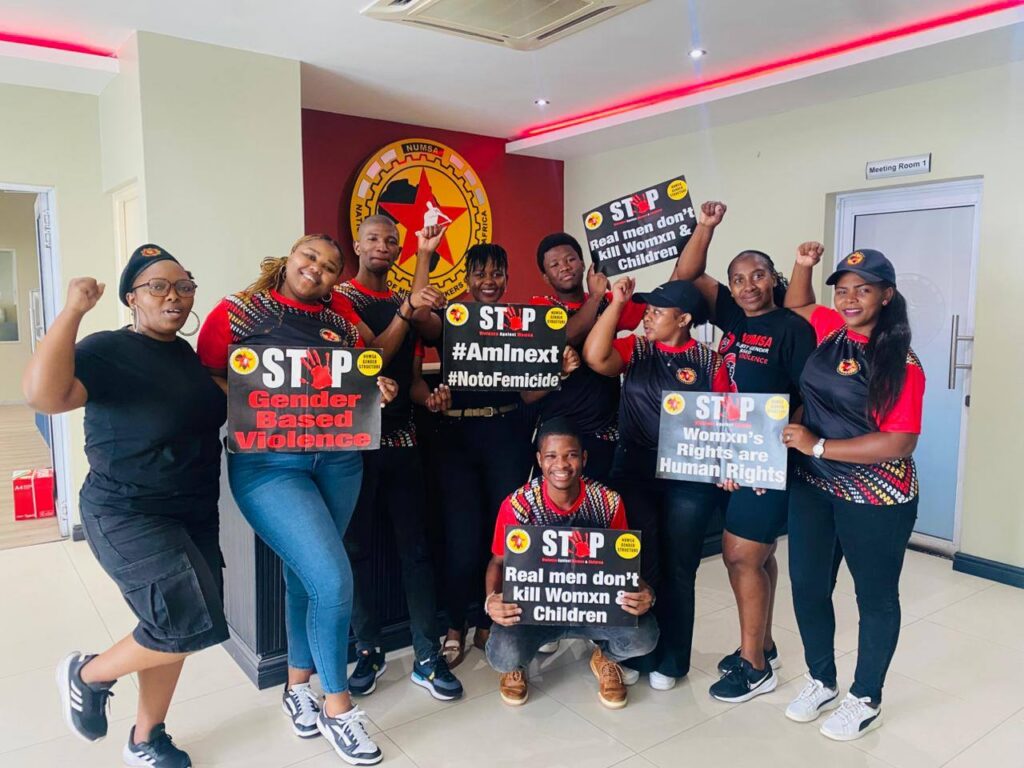27 November, 2025South Africa has formally declared gender-based violence and femicide (GBVF) a national disaster, invoking the Disaster Management Act of 2002. The decision, announced in the wake of widespread protests coinciding with the November 2025 G20 Summit in Johannesburg, marks a significant policy shift after years of civil-society and trade union pressure and persistently weak enforcement of existing legislation.
For the first time, GBVF will be treated under the same legal and administrative framework as natural disasters, unlocking additional budgetary resources, improved inter-governmental coordination and a structured approach to prevention, response and recovery.
GBVF statistics in the country are shocking. According to the Human Science Research Council (HSRC) 7.3 million women have faced physical violence while 2.1 million have survived sexual assault. Femicide stands at five times the global averages.
The declaration follows a decade-long campaign by trade unions and women’s rights organizations, which had repeatedly highlighted the failure of prior legislative measures including the 2018 National Strategic Plan on Gender-Based Violence and Femicide) to translate into effective implementation. Despite the enactment of stronger laws on domestic violence, sexual offences and workplace harassment, conviction rates remained extremely low and reporting was discouraged by systemic inaction by the police.
Public mobilization reached a peak during the G20 Summit with the “G20 Women’s Shutdown” action, in which women workers led a 15-minute silence in honour of women who have been killed or injured and, in many cases, absented themselves from work. A petition bearing more than one million signatures was presented to the government, amplifying long-standing demands from the Labour 20 (L20) engagement process. Trade unions had argued at the July 2025 L20 Summit that sustained GBVF imposes substantial economic costs through lost productivity, absenteeism, healthcare expenditure and the erosion of female labour-force participation.
The economic toll is particularly acute in sectors with high concentrations of women workers. Fatalities have occurred both in domestic settings and at the workplace. Notable cases include the 2017 murder of Thembisile Yende at Eskom’s premises and the killing of Pinky Mosiane underground at an Anglo -American Platinum mine in Rustenburg, both of which were taken up by IndustriALL affiliates, the National Union of Metalworkers of South Africa (NUMSA) and the National Union of Mineworkers (NUM) respectively. While the Yende case remains unresolved, in the Mosiane case the perpetrator received two life sentences according to court records.
By classifying GBVF as a national disaster, the state gains access to the integrated policy framework foreseen in Section 7 of the Disaster Management Act: prevention and risk reduction, mitigation, preparedness, rapid response and post-disaster recovery. This is expected to translate into ring-fenced funding, the establishment of a dedicated national coordination structure and mandatory reporting and performance metrics across provinces and departments.
The decision also strengthens the domestication of the International Labour Organization Convention 190 (Violence and Harassment Convention, 2019), which South Africa ratified in 2021. Accompanying Recommendation 206 provides detailed guidance on risk assessment, prevention measures and remedies in the world of work, areas where implementation had previously lagged.
IndustriALL assistant general secretary, Christine Olivier, said:
“This is an important step towards effective action to curb GBVF especially when cases were getting cold and women being frustrated and discouraged from reporting violations because nothing would happen to the perpetrators. Further, this is also an important development towards implementing national laws and ILO Convention 190 and Recommendation 206.”
Picture: NUMSA
